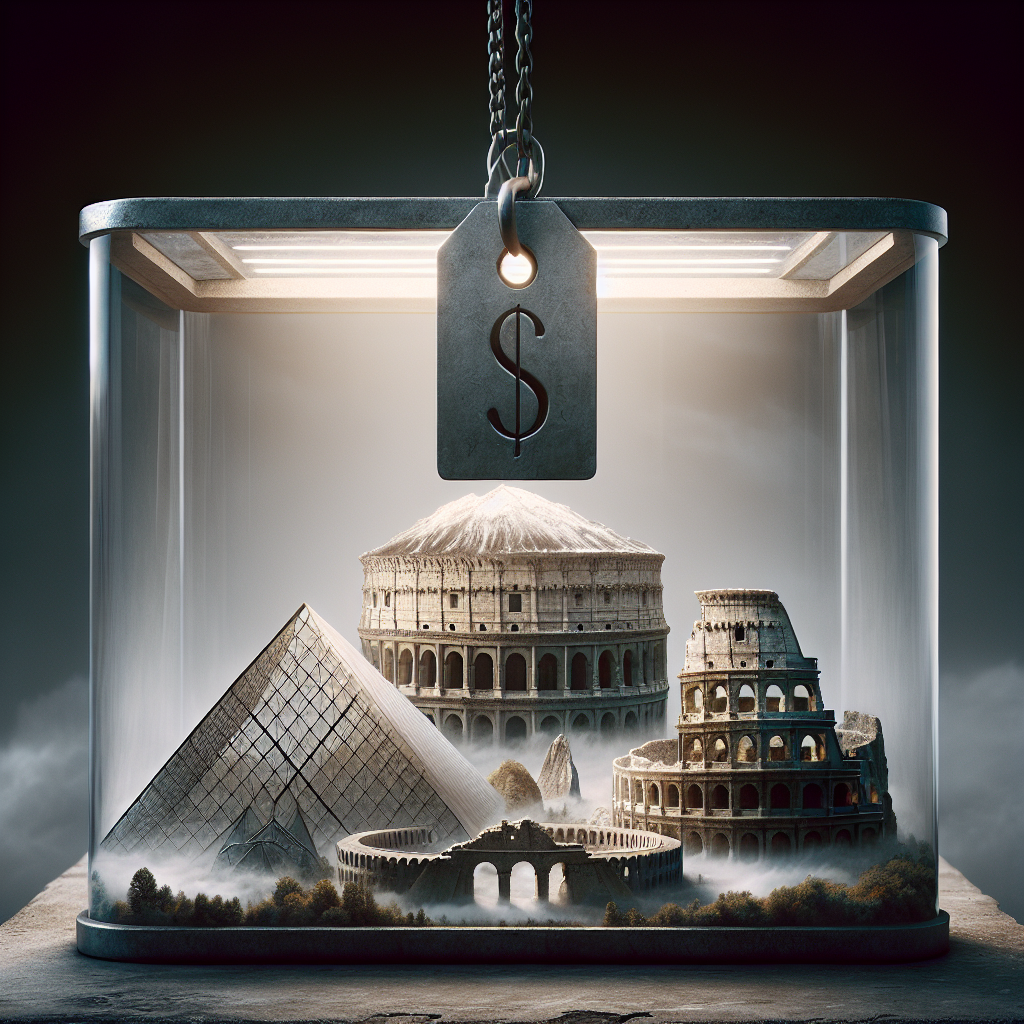
With the recent announcement that iconic global destinations are becoming more expensive for Canadians, the story is not just one of economic strain but one of cultural access and memory. The Louvre, the Colosseum, and Machu Picchu are more than tourist attractions; they are sites where cultures intersect, and histories are both preserved and challenged. As entrance fees rise, we must ask ourselves what this means for the collective memory these monuments curate and who gets to participate in this storytelling.
Monuments have long played a pivotal role in scripting our collective memory, acting as physical embodiments of history. When we visit these sites, we engage with stories that are often as much about what is omitted as what is included. This engagement becomes increasingly limited when economic barriers restrict access, leading to a curated memory accessible only to those who can afford it. With major tourist attractions like the Louvre set to increase their admission fees for Canadians, the dialogue around who participates in our shared history becomes even more critical.
Historically, monuments have served as both vessels of collective pride and sites of contention. The removal of Confederate statues in the United States, for example, underscores a growing awareness that the histories we choose to commemorate are not without bias. Such actions are part of a broader movement to re-evaluate public spaces that have long perpetuated one-sided narratives. However, this reevaluation becomes complicated when the financial cost of engaging with historical sites limits diverse perspectives from contributing to these discussions.
Calls for removal, renovation, or reinterpretation of historical monuments are not new, yet they have gained momentum in recent years. The debate over what to do with these sites often reveals deeper societal tensions about heritage and identity. For instance, the controversy over the Cecil Rhodes statue at Oxford University is emblematic of the struggle to reconcile historical reverence with modern values. Removing a monument is not merely about erasure but about making space for new narratives that reflect a broader spectrum of experiences.
Renovation of monuments offers an alternative to outright removal, potentially allowing for the addition of context and counter-narratives. However, this approach requires a commitment to inclusivity, ensuring that the voices of those historically marginalized are amplified rather than overshadowed by dominant narratives. This is where economic barriers become particularly pernicious, as they can silence these necessary dialogues before they even begin. If only wealthier individuals can access these sites, the potential for diverse reinterpretation is severely curtailed.
Reinterpretation involves shifting the focus from what a monument was intended to convey to what it means in today's context. This dynamic approach to memory-making is crucial for fostering a society that values dialogue over dogma. However, as entrance fees rise, particularly for Canadians who will face increased costs at major sites, we risk excluding a swath of perspectives that could enrich our understanding of these monuments. The stories told at these sites should not be dictated by economic privilege, but by a collective effort to understand our past and envision our future.
To address these challenges, we must explore innovative practices that facilitate dynamic remembrance. Virtual reality tours and digital archives offer potential solutions, enabling broader access to cultural landmarks without the prohibitive costs of physical travel. Additionally, community-based initiatives that focus on local histories can provide a platform for voices that may be overshadowed in grand narratives. By democratizing access to cultural memory, we can ensure that more people have a stake in the stories that define us.
Ultimately, the rising cost of accessing major global tourist destinations is both a financial and a cultural issue. It's imperative that we find ways to make these spaces inclusive and reflective of a diverse range of experiences. By embracing practices that prioritize accessibility and inclusivity, we can ensure that our monuments remain vibrant sites of dynamic remembrance. In doing so, we not only preserve our past but actively shape a future where memory is a shared responsibility.









































